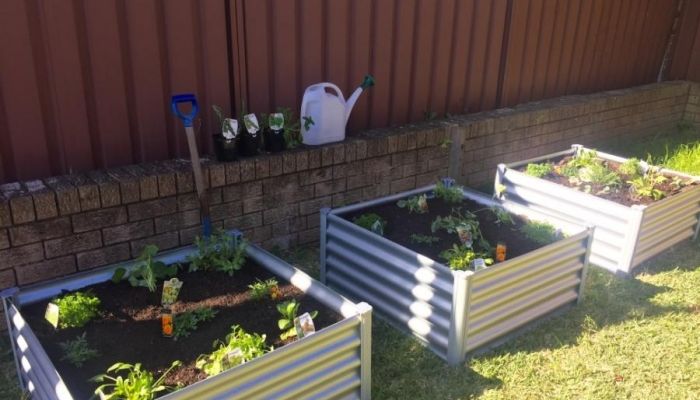Filling the gaps
28 September 2020

Safe House residents are able to grow some of their own food.
Salvos Safe House supports victims of human trafficking
Words Simone Worthing
Human trafficking and modern slavery are something many Australians think of as happening overseas. Tragically, this is not the case.
The Global Slavery Index 2018 estimated that on any given day (based on research from 2016), around 15,000 people were living in slavery-like conditions in Australia. It is also estimated that, for every victim identified, there are four that go undetected.
Through the country’s only Trafficking and Slavery Safe House, The Salvation Army runs a unique support service for people who have experienced human trafficking, slavery, or slave-like offences. This includes those who have experienced, or are at risk of, forced marriage.
The Trafficking and Slavery Safe House provides supported accommodation and case management for single women over 18. Outreach case management support can be provided to women, men, women and men with children, and young people, living in the community.
The intensive case management support model covers nine key areas: physical health, mental health, legal services, education and training, employment, housing and tenancy, social support and living skills, human rights and self-advocacy, and spirituality.
“The Safe House team makes any necessary referrals to other services for support in these areas, and we support clients to be able to engage independently with these services,” said Rosie, Program Manager at the Safe House.
The team at the Safe House can also provide confidential information and advice to other services and community members.
The Safe House accommodates up to 10 women and works with around 15 outreach clients at any one time.
“Our clients have experienced a range of different trafficking and slavery offences,” explained Rosie. “Broadly speaking, approximately one-third have experienced a form of servitude, one-third have experienced or are at risk of forced marriage, and one-third have experienced other forms of trafficking and slavery, including sex trafficking and exit trafficking [taking someone from Australia overseas with no means of return].”
Forced marriage is a growing issue in Australia. Many referrals to the Safe House for those potentially at risk of forced marriage are made through teachers and school counsellors.
“Other referrals to the Safe House come from other service providers who have recognised the indicators of human trafficking and modern slavery. We can also take self-referrals.”
Referrals to the Trafficking and Slavery Safe House and the Australian Freedom Fund (see below) can be taken from across Australia.
LONG-TERM ASSISTANCE
Through its flexible and holistic service, the Safe House can help fill the gaps for survivors of trafficking, modern slavery and forced marriage by offering services not available elsewhere.
“Timeframes needed for support are different for different people, with some requiring longer periods of support than they could access through other services,” explained Rosie. “Also, many of the people we’re supporting are not eligible for government-funded support.”
To help reduce the crisis support period in some cases, the Safe House is piloting an innovative housing program for survivors of modern slavery in partnership with Salvos Housing and the Sisters of Charity Foundation.
A first for Australia, the program seeks to deliver long-term housing options for survivors based on a new model aimed at transitioning people to independent living (see Karim’s story page 12).
The Safe House will provide case management support to participants, Salvos Housing will locate suitable properties and provide tenancy support and the Sisters of Charity Foundation will fund the program.
Properties will be leased on behalf of the participant, who will contribute 25 per cent of their income towards the cost. After a six- to 12-month period of support, the aim is that the participant will take over the lease.
The Safe House also partners with the Salvos’ inner-city women’s and children’s services, to assist those who need help but are unable to be accommodated at the Safe House.
AUSTRALIAN FREEDOM FUND
The Australian Freedom Fund supports survivors to access basic necessities when no other support is available.
Three types of grants can be applied for: emergency relief, independent living or family reunification. A grant request that falls outside these three categories can be assessed based on necessity and the need not being able to be met through another source.
To make a referral or discuss matters of concern, for information about the Australian Freedom Fund, or donate to the Trafficking and Slavery Safe House, call 1300 473 560.

Comments
No comments yet - be the first.